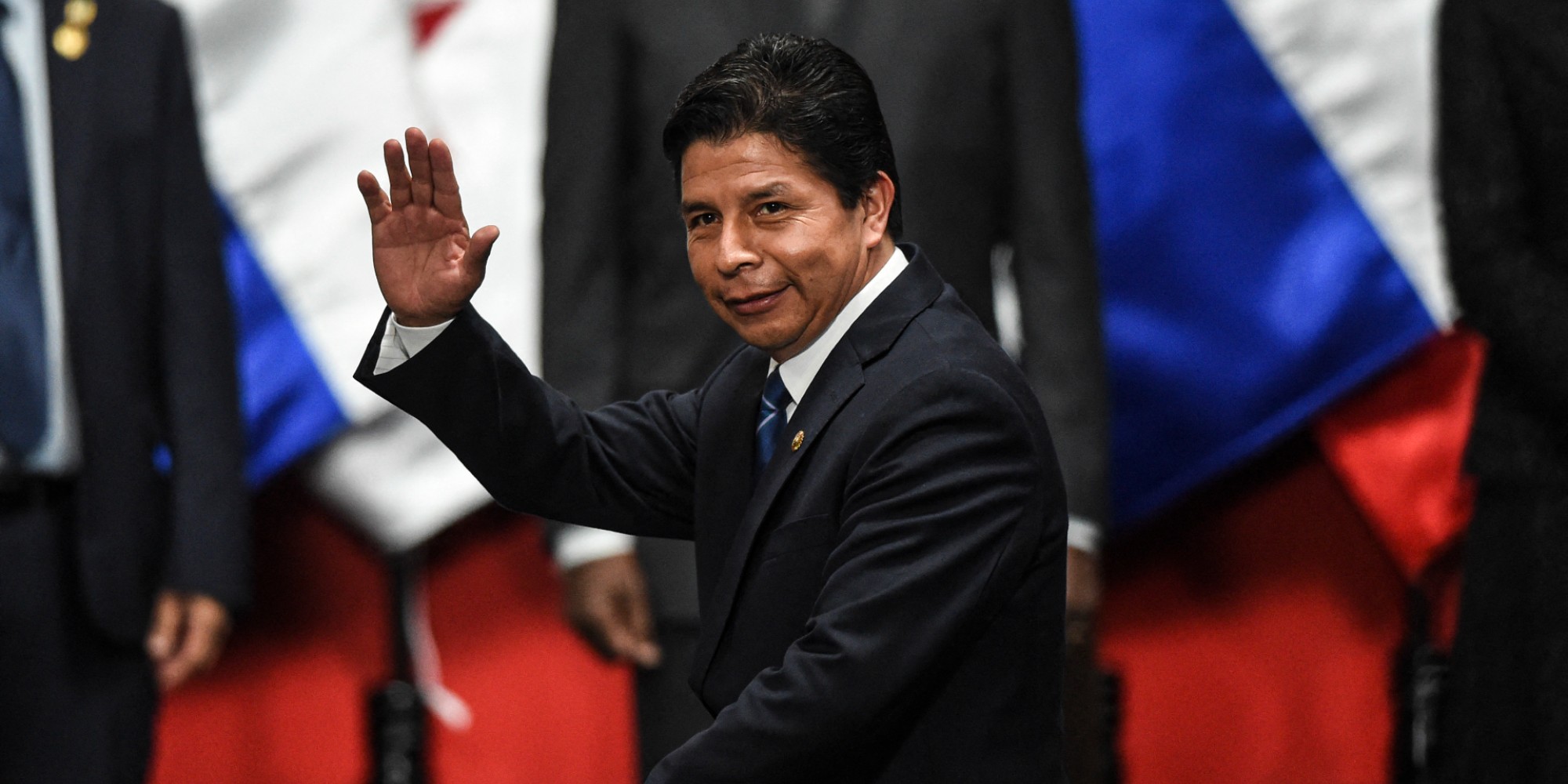Europe 1 with AFP 11:01 p.m., December 7, 2022
In Peru, Parliament voted on Wednesday to dismiss President Pedro Castillo, despite the announcement of his dissolution and the establishment of a state of emergency.
The vice-president, Dina Boluarte, was invested and denounced "a coup d'etat" by the president.
Peru's parliament, dominated by the opposition, voted on Wednesday to dismiss leftist President Pedro Castillo, ignoring the announcement of his dissolution and the establishment of a state of emergency.
Pedro Castillo, in power since July 2021, is the subject of six investigations for alleged corruption, of which his family and his political entourage are also accused.
His dismissal for "moral incapacity", broadcast live on television, was approved by 101 of the 130 parliamentarians, including 80 in the opposition.
The debate on this motion, initially scheduled for 3:00 p.m. (8:00 p.m. GMT), was brought forward after President Castillo's announcements.
Its vice-president, elected alongside him in 2021 and from the same Marxist-inspired party (Free Peru), Dina Boluarte, was invested at 8:00 p.m. GMT.
She denounced "a coup d'etat" by the president.
"Restore the rule of law and democracy"
In a message to the nation delivered from the presidential palace and also broadcast on television, Pedro Castillo said "temporarily dissolve the Congress of the Republic and establish an exceptional emergency government", aimed at "restoring the rule of law and democracy".
He also assured that he wanted "to convene as soon as possible a new Congress with constituent powers to draft a new Constitution within a period not exceeding nine months".
Until a new Parliament is in place, "the government will act by decree-laws", he continued, also announcing a "national curfew from today" between 10:00 p.m. and 4:00 a.m. .
"The judiciary, the judiciary, the public ministry, the national council of justice, the constitutional court are declared in reorganization", he also announced, asking "all persons in possession of illegal weapons" to "hand them over to the national police within 72 hours".
The national police "will devote all its efforts to the real and effective fight against crime, corruption and drug trafficking, for which it will be provided with the necessary resources", he added, calling on the institutions of society civil "to support these decisions which will allow us to put our country on the path of development".
"Self-coup"
Vice-President Dina Boluarte denounced on Twitter "a coup that aggravates the political and institutional crisis that Peruvian society will have to overcome by strictly respecting the law".
"It's a coup doomed to failure, Peru wants to live in democracy", also reacted Francisco Morales, president of the Constitutional Court, to RPP radio.
"No one owes obedience to a usurping government," he added.
President Castillo "has violated Article 117 of the Peruvian Constitution and is illegal. It's a self-coup," also noted to AFP Augusto Alvarez, an independent political analyst.
"The United States strongly urges President Castillo to reverse his attempt to dissolve Congress and allow democratic institutions to function in accordance with the constitution," US Ambassador to Lima Lisa Kenna wrote on Twitter.
Peru's Ambassador to the Organization of American States (OAS), Harold Forsyth Mejia, announced his resignation during a meeting of the OAS Permanent Council in Washington.
He denounced "a breakdown, to say the least technical, of the constitutional order, which is naturally a very serious affront to the constitutional process in Peru, to democracy in Peru and to democracy in all the countries that are part of this organization".
Almost four governments in eight months
Pedro Castillo had previously escaped two similar motions, the last of which was in March 2022. At the time, the opposition accused him of having intervened in a case of alleged corruption operated by his entourage and of having committed "treason "by declaring herself open to a referendum on an outlet to the Pacific Ocean for neighboring Bolivia, deprived of access to the sea. She also blamed him for the repeated ministerial crises and the formation of four governments in eight months, an unprecedented fact in Peru.
It was then the sixth impeachment motion by the Peruvian Parliament for "moral incapacity" against a sitting president since 2017, after Pedro Pablo Kuczynski (right) in 2018 and Martin Vizcarra (center) in 2020. Vizcarra had sparked violently suppressed protests that left two dead and around 100 injured.
His departure had led Peru to have three presidents in five days.

